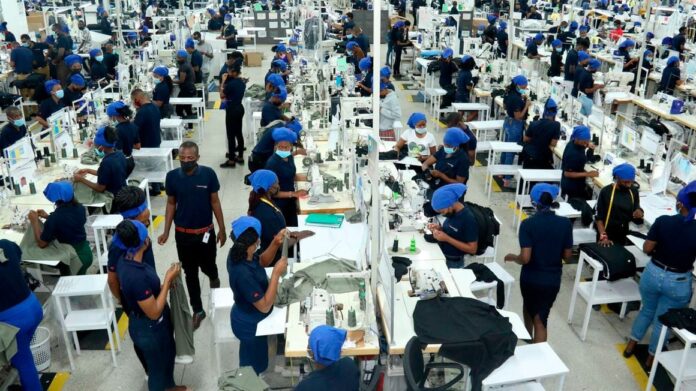The US and Kenya announced a trade and investment partnership in July 2022. Talks have been progressing on the way forward in nine areas, including agriculture, anti-corruption, digital trade, environment and climate change action, and workers’ rights and protections.
The Strategic Trade and Investment Partnership (Stip) will be the first significant trade partnership between the US and a country in Sub-Saharan Africa. Countries in the region currently rely on the African Growth and Opportunity Act (Agoa), which offers duty- and quota-free access to the US market. The new deal is seen as a model for future agreements between the US and other Sub-Saharan African countries.
The labour provisions proposed under the Kenya-US deal are not new. They have become standard features of all US free trade agreements since first appearing in the North American free trade agreement of 1994.
Kenya and the US undertake to work together to advance and protect labour rights through enforcement of and compliance with labour laws, promotion of social dialogue, and cooperation in other areas of mutual interest on labour and employment priorities, including with respect to forced labour in global supply chains.
There is currently very little information regarding the potential scope of the labour provisions. But there is reason to believe they will borrow heavily from precedents of the US-Mexico-Canada Agreement (USMCA).
Under the USMCA, Contracting Parties commit to four core international labour standards. These are: freedom of association and collective bargaining; elimination of all forms of forced or compulsory labour; effective abolition of child labour; and elimination of discrimination in respect of employment and occupation.
I have recently authored a paper on the labour issues raised in the proposed free trade deal between the US and Kenya. I have also studied China’s bilateral treaties and reviewed its trade deals with African countries.
Ordinarily, a trade agreement that aims at promoting workers’ rights should be welcomed. Kenya faces numerous obstacles to effective protection of the rights of workers despite having many laws with this aim.
But the imposition of stringent labour standards via a trade agreement raises concerns about: additional international obligations high implementation costs
Sovereignty hidden motives uneven playing field.
In my opinion, the inclusion of strong labour provisions in the Stip may have very little to do with protecting workers in Kenya. It may be more about sidelining China in Africa, protecting US jobs, and enhancing US soft power in the region.
1. International obligations
The controversy over the issue of trade and labour standards is not new. Nearly thirty years ago, developing countries rejected attempts by some industrial nations to subject labour standards to World Trade Organisation rules and disciplines. Introducing them through a free trade pact implies contracting states will be required to adopt and enforce global labour laws.
Including labour provisions in the Stip will have the effect of imposing additional commitments on Kenya beyond its current obligations as a member of the World Trade Organisation. Quite apart from the cost of implementation, imposing labour commitments through the backdoor of a trade agreement exposes Kenya to costly dispute settlement procedure and possible trade sanctions in event of a breach.
Read more on The EastAfrican




